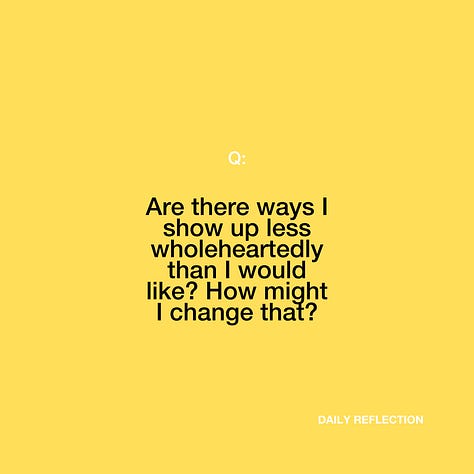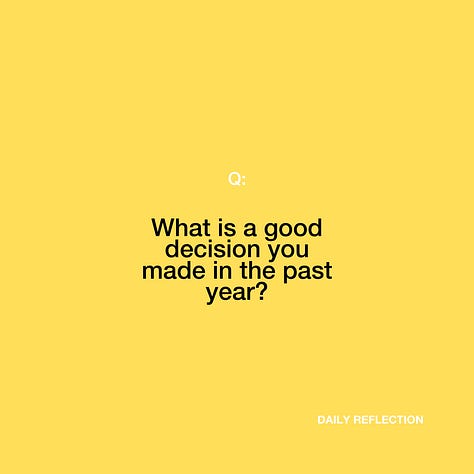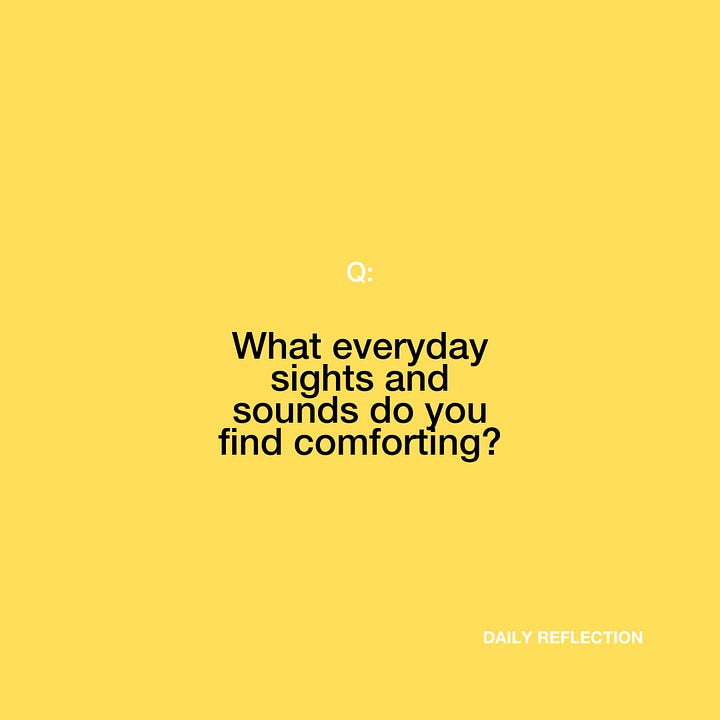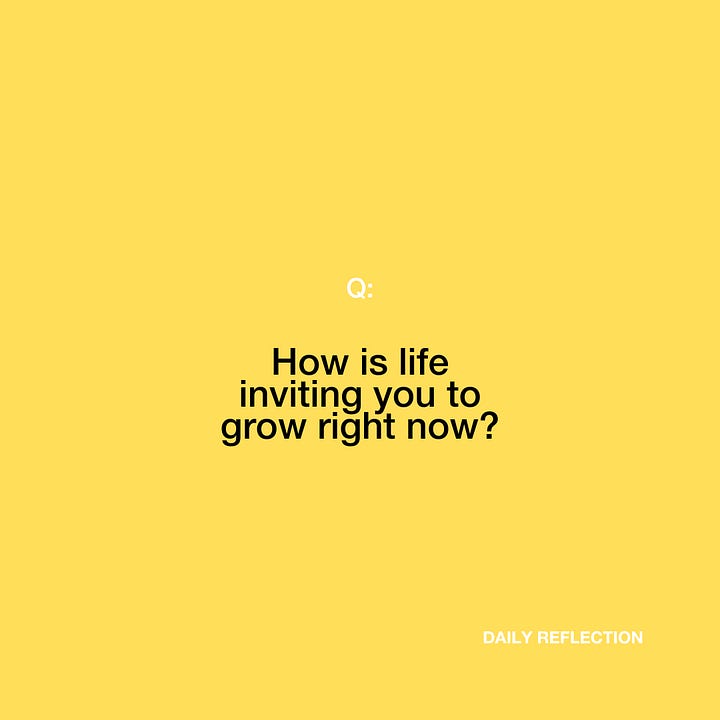What level do you want to play at?
Amateur athletes might watch game film. Professional athletes definitely do.
Football seems to be a recurring theme in my life this week.
Exhibit A: I went to the Iowa football game last weekend. (We don’t need to talk about how that ended.)
Exhibit B: At the start of our Elevate Program each week, I lead a simple check-in where participants share “what’s up” and “what’s down.” And this week, many times, the return of football was a highlight.
Exhibit C: In one of my cohorts we were discussing the power of reflection, and a participant made an apt observation. Watching game film is a form of reflection. But he took it one step further:
Some amateur athletes might watch game film. But, all professional athletes do.
The folks who are at the top of their game would never treat reflection as a nice-to-have.
This begs the question: If we’re committed to reaching our potential as a leader and teammate, are we taking reflection seriously?
Why Reflection Is the Game Film of Leadership
We often assume that learning happens by doing. But the truth is, learning happens in reflection—when we pause, review what just happened, extract lessons, and then apply them going forward.
Research shows that as little as five to ten minutes a week of dedicated reflection has measurable business impact. Employees become more effective. Teams save time. Organizations perform better. It’s that powerful.
The best athletes recognize this. They don’t just practice—they study their practice. They reflect. And if we want to show up as our best selves, we ought to do the same.
Reflection: The Ultimate Proactive Zone Activity
For anyone unfamiliar, the Eisenhower Matrix is framework that helps us to assess the types of activities we spend our time on. It forces us to measure two factors: urgency and importance. In the Eisenhower Matrix, reflection sits squarely in the upper-right quadrant: Important but Not Urgent. This is what we call the Proactive Zone.
Proactive Zone activities are those things that are important but will never demand your attention with a flashing deadline. Which is why so many people punt them. We slip into the I-can-do-it-tomorrow trap.
But the best don’t fall for that. They know reflection is a non-negotiable.
How to Build the Habit
In our Elevate Program, I always tell people: start small. Five to ten minutes a week is enough. And when you sit down to reflect, follow the emotion:
What energized you this week? What felt motivating, exciting, or rewarding? That’s data about what’s working. Codify it. Replicate it.
What frustrated you, drained you, or left you confused? That’s data too. There are adjustments waiting to be made.
I also love using a prompt to guide reflection. Every morning on Instagram, I post a question designed to make you pause and think. They’re simple jumping-off points for deeper reflections that may not otherwise surface over the course of our day-to-day.
Here’s a sneak preview of the current lineup:







(Shout out to anyone who not only reads those daily reflections, but shares their thoughts with me. Truly a highlight of my day!)
The Compounding Effect
The magic of reflection isn’t just in one session. It’s in the repetition. Week over week, reflection builds awareness. We start recognizing patterns. We make real-time adjustments faster. We sharpen our instincts.
This is how we separate the amateurs from the professionals. Not because we worked harder, but because we worked smarter—crystallizing lessons and implementing them.
So again, I’ll leave you with the question: What level do you want to play at?
If you want to operate at a professional level—in your career, on your team, and in your life—reflection can’t be optional. It has to be a priority.
📌 Start this week. Block ten minutes on your calendar. Pick one moment from your week that carried emotion—good or bad. Write down what happened, what you learned, and how you want to implement next time.


